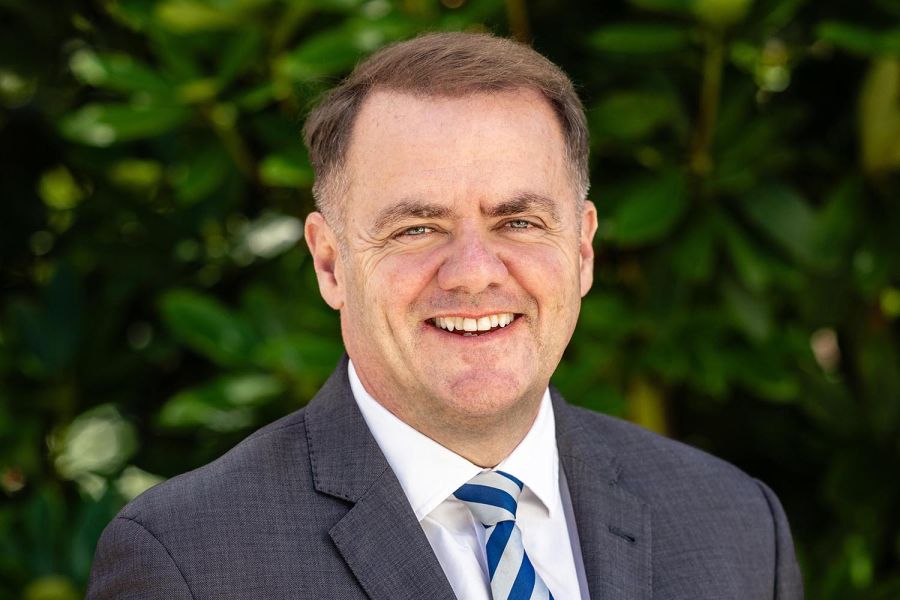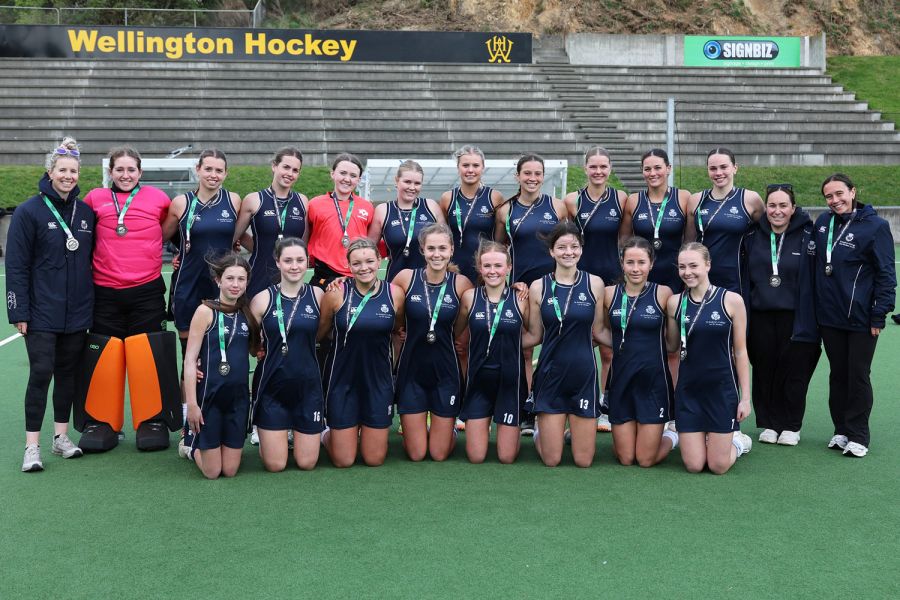Learning beyond the classroom
1 August 2024

REGULUS // ISSUE 2 // AUGUST 2024
The exciting co-curricular programme at St Andrew’s is integral to every young student’s development, enriching their educational journey, and helping them to find their place in the College, says Head of Values and Culture, Hamish Bell. “Whatever their interests, there is a co-curricular activity for all students, allowing them to explore their existing passions or find new ones. Socially, there are huge benefits too, with like-minded students mixing in different groups, building networks and a sense of community.”
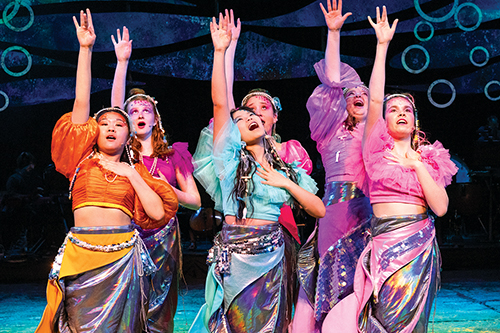 In the Secondary School, the co-curricular programme is compulsory for students from Years 9–12, and although it is not compulsory in Year 13, the majority of these students stay involved. “A lot of our students have multiple co-curricular activities on the go, which teaches them good self-management skills as they manage their busy schedules alongside their academic learning,” says Hamish.
In the Secondary School, the co-curricular programme is compulsory for students from Years 9–12, and although it is not compulsory in Year 13, the majority of these students stay involved. “A lot of our students have multiple co-curricular activities on the go, which teaches them good self-management skills as they manage their busy schedules alongside their academic learning,” says Hamish.
The co-curricular programme covers all competitive and social sport, and a wide range of cultural activities including music, Performing Arts, dance, Ballet Academy, Pipe Band, debating, and a range of clubs.
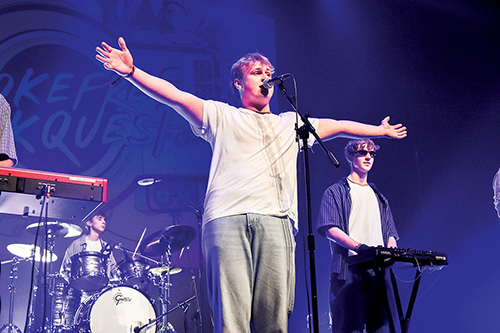 Alongside Hamish, who oversees the programme, a whole team of staff contribute, including Director of Sport and Co-curricular Activities, Mark Lane, who looks after all sport and the various clubs in the programme. “St Andrew’s competitive sports teams are well known for the great success they achieve in local, regional, and national competitions. However, the biggest growth areas in the sports programme are social sport, and our Learn to Play programmes,” explains Mark. “It’s great to see so many students giving sport a go, no matter what level they play at or whether they have played it before. Our Learn to Play programme is huge, as it gives students the opportunity to learn a new sport, so their experience when they do get on the court or field is a positive one.”
Alongside Hamish, who oversees the programme, a whole team of staff contribute, including Director of Sport and Co-curricular Activities, Mark Lane, who looks after all sport and the various clubs in the programme. “St Andrew’s competitive sports teams are well known for the great success they achieve in local, regional, and national competitions. However, the biggest growth areas in the sports programme are social sport, and our Learn to Play programmes,” explains Mark. “It’s great to see so many students giving sport a go, no matter what level they play at or whether they have played it before. Our Learn to Play programme is huge, as it gives students the opportunity to learn a new sport, so their experience when they do get on the court or field is a positive one.”
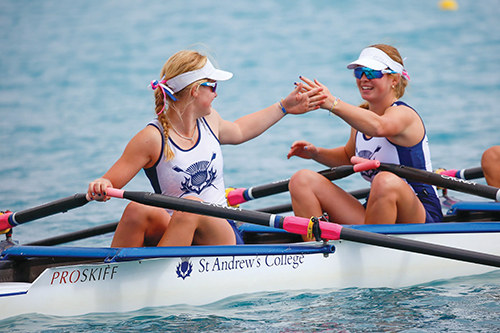 Also heavily involved in the programme are the sports co-ordinators of the various sports, Pipe Band Director Richard Hawke, Head of Music Duncan Ferguson, Head of Drama and Dance Laurence Wiseman, Performing Arts Co-ordinator Ginnie Thorner, and Ballet Academy Artistic Director Carolyn Cairns. The programme is also compulsory for teachers, who each year, are required to be involved in either a winter and summer co-curricular sport or activity, or a year-long one. Parents also help out in various areas of the programme, while students give back too, often via Community Service, or the Duke of Edinburgh’s Hillary Award Programme.
Also heavily involved in the programme are the sports co-ordinators of the various sports, Pipe Band Director Richard Hawke, Head of Music Duncan Ferguson, Head of Drama and Dance Laurence Wiseman, Performing Arts Co-ordinator Ginnie Thorner, and Ballet Academy Artistic Director Carolyn Cairns. The programme is also compulsory for teachers, who each year, are required to be involved in either a winter and summer co-curricular sport or activity, or a year-long one. Parents also help out in various areas of the programme, while students give back too, often via Community Service, or the Duke of Edinburgh’s Hillary Award Programme.
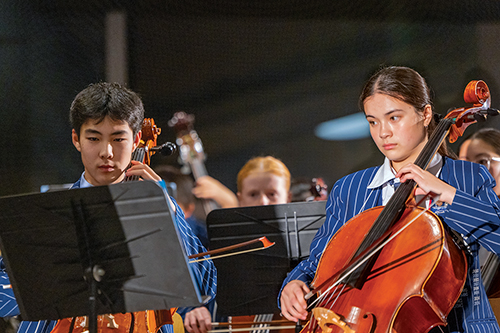 Both Hamish and Mark agree the co-curricular programme is essential for developing well-rounded young adults, helping them to explore their interests, develop new skills, and build relationships, “Whether students are striving for the highest levels of achievement in their sport or cultural activity, or enjoy the participation side and being with their friends, the programme has huge value,” says Hamish. Adds Mark, “One of the great measures of success is that students continue on with their sport or cultural activity once they leave school. That’s when we know the programme is working.”
Both Hamish and Mark agree the co-curricular programme is essential for developing well-rounded young adults, helping them to explore their interests, develop new skills, and build relationships, “Whether students are striving for the highest levels of achievement in their sport or cultural activity, or enjoy the participation side and being with their friends, the programme has huge value,” says Hamish. Adds Mark, “One of the great measures of success is that students continue on with their sport or cultural activity once they leave school. That’s when we know the programme is working.”
Related Posts
